
For a great many centuries, ever since their origins on the silk road as a snack to go with Yum Cha, (literally drinking tea) the small morsels of delicious food known as Dim Sum have been as much about the art of attraction as they have about sustenance.
Competing vendors would come up with ever more delectable and attractive varieties of Dim Sum to tempt weary travelers inside their tea houses and the little morsels that translate from Cantonese as ‘a little touch on the heart’ have ever since, become ever more intricate, complex and delicious.
Dim Sum has evolved from being a lure to go with tea to becoming a full meal and a culinary ritual with little steamers piled high, laden with steamed or fried dumplings that resemble little packages of magical deliciousness and bite sized morsel of the most tender treats -in fact, it is now very much the tea which is seen as the accompaniment and not the other way around.
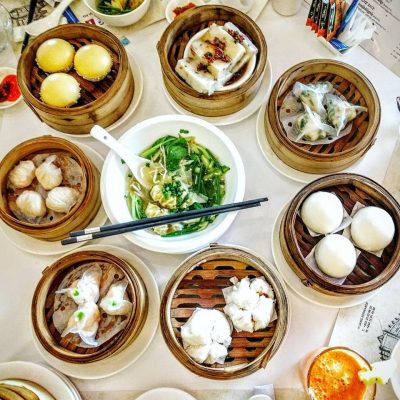
The unique culinary art of making dim sum has long been regarded as a demanding and exceptional profession within the realm of Cantonese and Chinese cooking, taking years to perfect and decades to master, whilst dining on Dim Sum has become a fun, loud and happy occasion, shared with friends and family, a leisurely affair that can take many hours.
In Cambodia, Master Chef Luu Meng has worked with his team of Dim Sum chefs to develop his Yi Sang restaurants to deliver Dim Sum that is of the freshest and highest quality, creating handmade, artisan dim sum in keeping with the traditions and origins of this very special dining experience. So when Luu Meng told me he intended to create half a dozen new dim sum and invited me to pair wines to a selection of 10 dim sum for a special dinner I was ecstatic, Meng was stoking the ovens of a culinary passion that had been a part of my own food and wine journey since its very beginnings, in my home town.
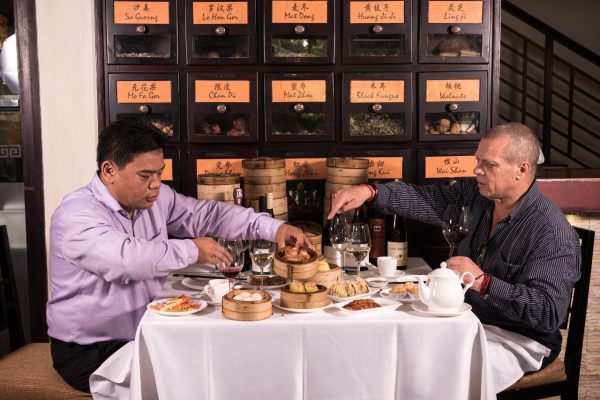
Pairing wine with food is a very old and classical part of European dining and there are many similarities between the evolution of dim sum and tea in China with the evolution of tapas and wine in Spain. In Andalusia, tavern owners would cover glasses of sherry with a tapa (literally, to cover) of bread or cured meat to keep dust, flies and other insects out of their customer’s glasses. Eventually inn keepers would top these ‘covers’ with ever more elaborate food, the tapa becoming an important miniature billboard to show off the establishments kitchen fare in order to lure a mostly illiterate customer base to their inns.
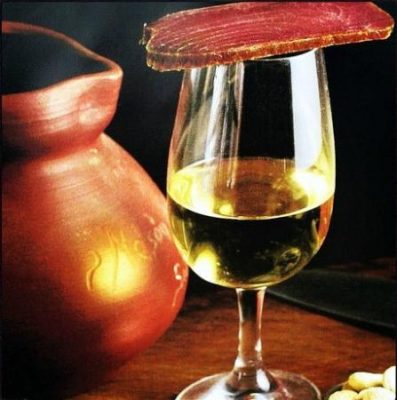
Whilst tea is seen to aid digestion and cleanse the palate in dim sum, the same can be said for the ancient practice of drinking wine with food. The ancient Greeks and Romans left ample reference to the benefits of drinking wine with a meal and the pairing of food and wine has evolved itself to be considered a great art and an integral part of fine dining all over Europe and much of the western world.
Having worked around the world with wine for a quarter of a century, I have long been an ardent advocate of the ability of paring the right wines with the right dishes to elevate a dining experience. Growing up in multi-cultural Melbourne, I also developed, from a very young age an instant and deep emotional connection to dim sum, one that has become a lifelong love affair. This passion began long before my friend Gilbert Lau decided to depart from the then most famous Chinese restaurant in Australia, ‘The Flower Drum’ to open his Dim Sum palace in the suburbs, ‘Purple Sands’, which led to the regular, almost religious weekend pilgrimage into the eastern suburbs, to queue up for an hour or more to take my turn amongst the steamer trolleys, cacophony and sheer joy of a Sunday dim sum lunch.

Whilst we did drink plenty of tea, I had first met Gilbert when he used to wander down to the inner city wine boutique I worked in, to pick up special wines for his special guests and at Purple Sands we were permitted to bring our own wines and so, selecting wines to go with dim sum was an early and essential part of my wine career.
Pairing food and wine has to me always involved judgements or decisions about the body of the wine in relation to the body or weight of the dish, the texture of the wine in-mouth, compared to the texture of the dish and the correlation of flavor and aroma between dish and wine.
Traditional European dining and notions of pairing food and wine normally see dishes served one at a time and different wines paired to each dish as they are served. This presents one of the great challenges to matching food and wine in China and in fact much of Asia, where many dishes are served at once and then eaten simultaneously, to give greater balance and complexity to the entire meal.
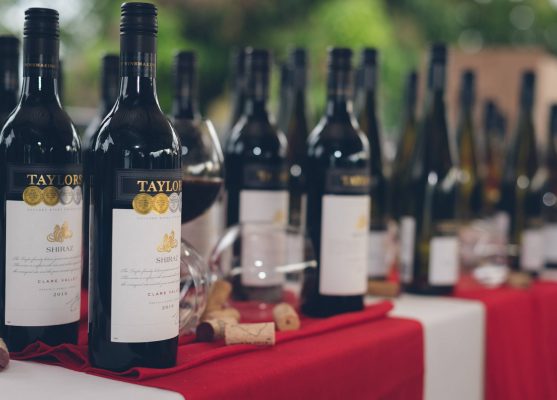
I therefore decided very early on that in my wine career that there was little point in trying to change the way people ate to adapt to wine. If wine is to become part of the dining ritual of a new culture and country, it then has to adapt to the ways a meal is presented and eaten in any new market. For family style dim sum, with its stacks of steamers and little bowls all over the table, filled with bite sized dumplings and morsels of multiple flavours, textures and tastes, my solution was to simply find one or two wines, (or three if there are sweets at the end) that can be enjoyed throughout the course of the meal, from beginning to end, cleansing and refreshing the palate without ever dominating or even detracting from the meal, just like the tea.
For deciding upon my ideal dim sum wines I consider several elements of the degustation beyond just the cuisine itself and including the service, the ambience and atmosphere of the venue, the company at table and even the time of day.
As mentioned, given the all-in family style nature of dim sum service I am only looking for one or two, grazing wines that can go with a wide range of dishes and be comfortably sipped or guzzled over a slow, steady swishing of chopsticks and slurping of dumplings that will often take a couple of hours. Now, dim sum meals are usually not the time to impress with a knock out wine -be it a Grand Cru, or a rare single vineyard wine from a tiny producer- this is a time for good value, all-rounders that you are happy to serve to both your best mate or his new friend who doesn’t really like wine or even your own mother-in-law; good fun, user friendly crowd-pleasing wines apply here.
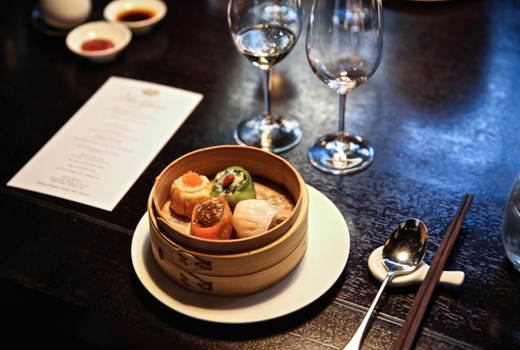
I don’t want wines that are too heavy, full bodied or high in alcohol as these might be to ‘big’ in flavor and weight on the palate for the subtle, often delicate flavours and small, tantalizing size of the Dim Sum and as I mostly eat dim sum as a late breakfast, brunch or lunch, I don’t really like big wines that are going to ‘knock me over’ for the rest of the day.
When it comes to texture there is a lot of fried dim sum and dumplings with their gelatinous or doughy casings, so I am looking for wines with bright acidity to cut through these oily, gelatinous or unctuous textures and clean up my palate, much in the same way the tea works with its subtle, very fine tannins. Having said that, I am not looking for oaky, tannic wines as they are usually too full and heavy and the tannins too course and aggressive for the elegant and restrained nature of traditional dim sum, so its light to medium bodied wines with good, vibrant acidity that tend to work best for me.
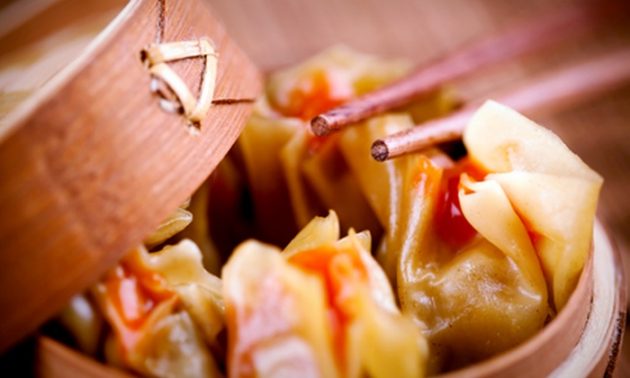
Dim Sum by its nature is, along with a lot of Cantonese cuisine, subtle in flavor and texture, highly refined and almost delicate so, the wines need to take this into consideration however, there is also the matter of the dipping sauces, strong, savory and salty soy sauces, hot and spicy chili sauces and sometimes garlic, pepper, lime and other piquant and strongly flavoured ingredients in the sauces and condiments. So here, along with good acidity which promotes saliva flow and can ameliorate heat, I look for wines that have a good concentration of primary fruit character to be able to compete with the saltiness, savory-ness, heat and spice of the sauces. These again do not have to be big, full bodied wines, just wines with good intensity of fruit flavour.
For me, the perfect way to start a dim sum is with Champagne, it’s a textural thing really, sensory and sensual and as always with Champagne, a little bit salubrious and celebratory. Here Champagne not only sets the mood, I find its subtlety of flavours, its pristine elegance, its vibrant acidity and it expansive, joyously explosive mousse work beautifully with the dumplings just like a little spa bath after an oil massage, its bliss for the palate and I can enjoy a traditional cuvee, a Rose Champagne or a Blanc de Noir with dim sum throughout the entire meal.
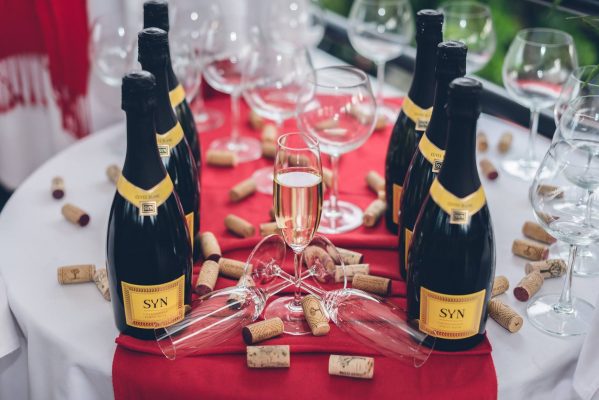
I do also enjoy a good dry style Riesling from either Alsace or the Clare Valley in Australia, wines with intense yet elegant flavours of citrus, orange blossom, honey and cut straw balanced by fine talc and chalk acidity. I find Riesling to be almost the perfect all-rounder that can be enjoyed from beginning to end, across a wide variety of steamed and fried dim sum and it copes well with the soy and chilli sauce components.
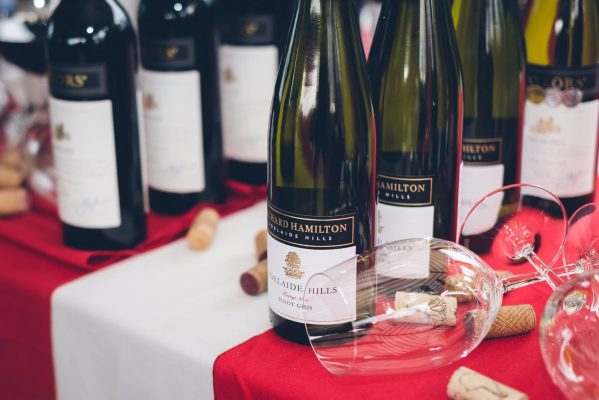
A more elegant Sauvignon blanc with its green herbs and crunchy, racy acidity and mineral like finish can also work well, whether from Sancerre, or Pouilly Fume in France, New Zealand or Chile. Other whites to consider are the more elegant, crisper whites of Bordeaux, the flinty, minerality of the Chardonnay from Chablis, crisp, green apple like Pinot Grigio from the north of Italy, Albarino from the Rias Baixas area of Spain or the fuller Verdejo from the Rueda region, also in Spain.
Rose wines can pair well with Dim Sum and can be chilled right down to maintain their refreshing quality, I prefer the subtler, crisper rose wines from Provence or the slightly spicy rose wines from Tavel in the Rhone Valley for this style of dining.
As you move through your degustation of Dim Sum, many guests may start to feel that it is time for a red wine to make an appearance at the table and for many Chinese red wine is their preferred choice regardless of the food, time of day or occasion. My favourite ‘dim sum reds’ are the lighter, more fruitful varieties like Pinot Noir and Merlot, light to medium bodied reds with good acidity, very fine and subtle tannins and attractive fruit. Pinot Noir, especially from the new world regions like Central Otago in New Zealand or Oregon in the United States also cope well with spice and heat from the Chili sauce, whilst the subtle, velvet like tannins of Merlot work their magic with the fried Dim Sum dishes.
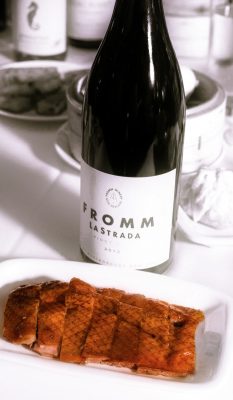
If the sweeter dim sum appears to finish the meal I like to whip out a nice Muscat de Beaumes de Venise, its restrained sweetness and fortified intensity a perfect way to finish a long grazing with family and friends.
So there you have it, Dim Sum is undoubtedly one of the world’s great and much loved cuisines and whilst not a traditional part of the meal, wine can happily find a place at my dim sum table. If you go to the more refined hotels or dim sum palaces of Hong Kong or Shanghai today, you are just as likely to find a glass of champagne or even Bordeaux on the table as you are a pot of tea and whilst I don’t bother with trying to find a wine for every dim sum on the menu, there are plenty of choices when it comes to finding a wine for all your dim sum choices, one you can enjoy throughout the meal. I find that with pairing wine to dim sum, just like the dim sum selection itself, the trick is to experiment a lot and remember the ones you like.

